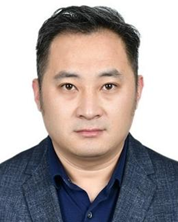![]() KEYNOTE SPEAKER
KEYNOTE SPEAKER

Prof. Ning Wang, Dalian Maritime University, China
Ning Wang received his B. Eng. degree in Marine Engineering and the Ph.D. degree in control theory and engineering from the Dalian Maritime University, Dalian, China in 2004 and 2009, respectively. From September 2008 to September 2009, he was financially supported by China Scholarship Council to work as a joint-training PhD student at the Nanyang Technological University (NTU), Singapore. In view of his significant research at NTU, he received the Excellent Government-funded Scholars and Students Award in 2009. From August 2014 to August 2015, he worked as a Visiting Scholar at the University of Texas at San Antonio. His research interests include self-learning autonomy, uncrewed (marine) vehicles, and autonomous systems.
Dr. Wang was honored with the National High-level Talents Program for Young Top-notch Talents. He has published more than 200 SCI-indexed journal papers. He is a Fellow of IET, IMarEST, IIAV, and ISCM. He has been Leading Guest Editors of International Journal of Robust and Nonlinear Control, Neurocomputing, Control Engineering Practice, IFAC Mechatronics, and IET Control Theory & Applications. He currently serves as Associate Editors of IEEE Transactions on Intelligent Transportation Systems, IEEE Signal Processing Letters, IEEE Systems Journal, Journal of Field Robotics, Ocean Engineering, International Journal of Robust and Nonlinear Control, ISA Transactions, Journal of Marine Science and Application, International Journal of Fuzzy Systems, Transactions of the Institute of Measurement and Control, and IET Electronics Letters. He was recognized as the Highly Cited Researcher by Clarivate Analytics, the Highly Cited Chinese Researcher in Naval Architecture and Ocean Engineering by Elsevier, and the World's Top 2\% Scientists (Career-Long Impact) by Elsevier and Stanford University.
![]() KEYNOTE SPEAKER
KEYNOTE SPEAKER

Prof. Yifei Guo, Shandong University, Jinan, China
Speech Title: Optimal Dynamic Voltage Support of Inverter-Based Resources
Yifei Guo received the B.E. and Ph.D. degrees in Electrical Engineering from Shandong University, Jinan, China, in 2014 and 2019, respectively. He is currently a Professor with the Key Laboratory of Power System Intelligent Dispatch and Control, Ministry of Education, Shandong University, Jinan, China. From 2022 to 2024, he was a Lecturer with the School of Engineering, University of Aberdeen, Aberdeen, U.K. Earlier, he worked as a Postdoctoral Research Associate at Imperial College London, U.K., and Iowa State University, USA, from 2019 to 2022. His research interests include power system modeling, control, and optimization. Dr. Guo serves as an Assistant Editor for International Journal of Electrical Power & Energy Systems and an Associate Editor for Modern Power Systems and Clean Energy.
![]() KEYNOTE SPEAKER
KEYNOTE SPEAKER

Prof. Qianggang Wang, Chongqing University, China
Speech Title: Fault Ride-Through Technology Based on Coordinated Control and Protection for Flexible DC Transmission in Large-Scale Renewable Energy Power Export
Qianggang Wang (Senior Member, IEEE) received the B.S. and Ph.D. degrees in electrical engineering from Chongqing University, Chongqing, China, in 2009 and 2015, respectively. From 2015 to 2017, he was a Research Fellow at Nanyang Technological University, Singapore. He is currently a Professor and Vice Dean of the School of Electrical Engineering, Chongqing University. His research interests include power system operation, microgrids, and renewable energy. Prof. Wang serves as an Assistant Editor for IEEE Transactions on Power Delivery.